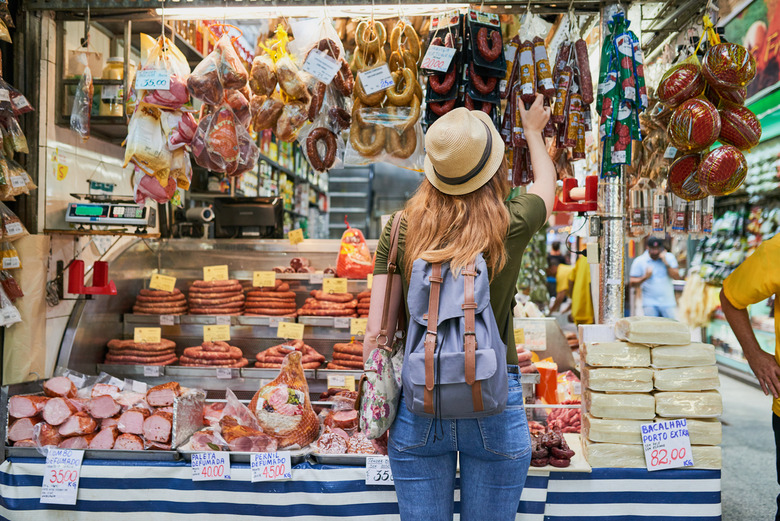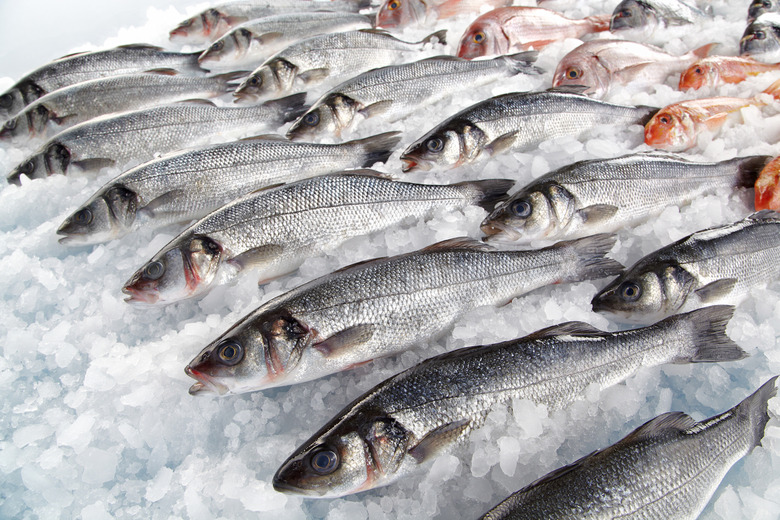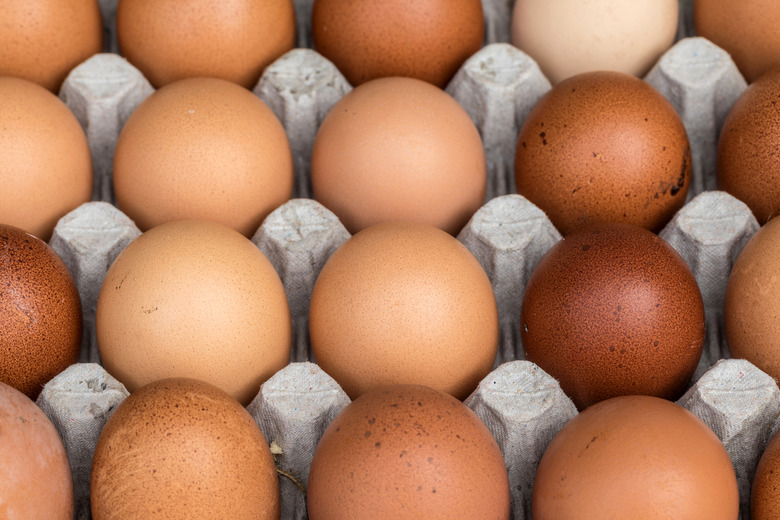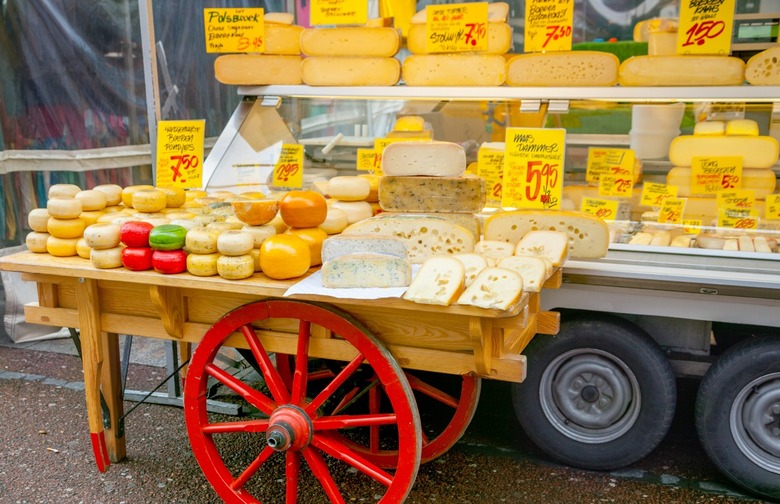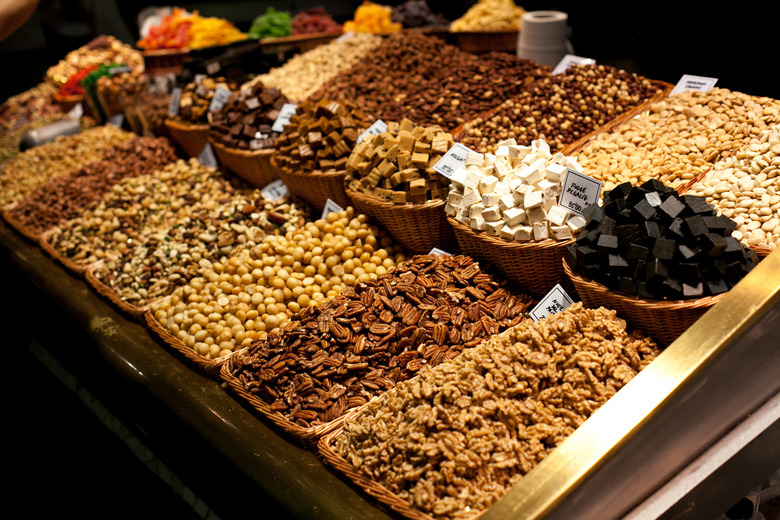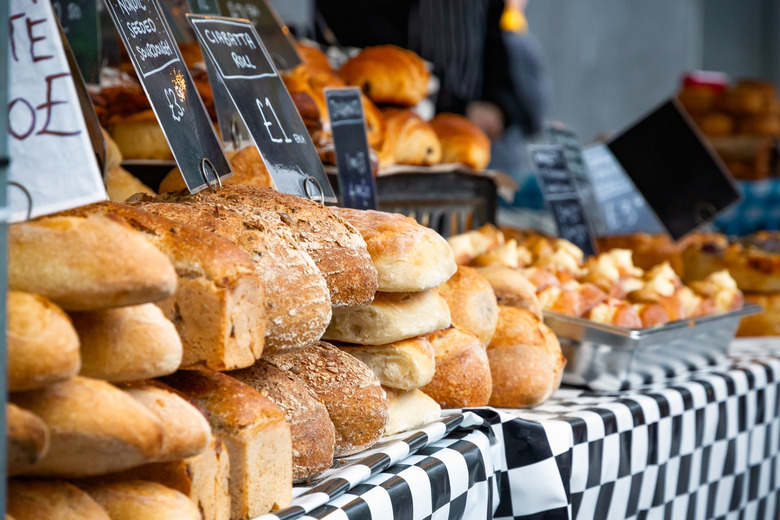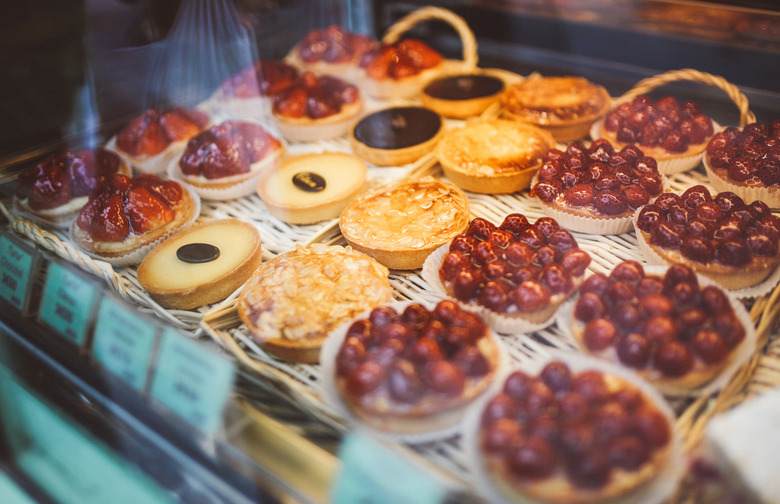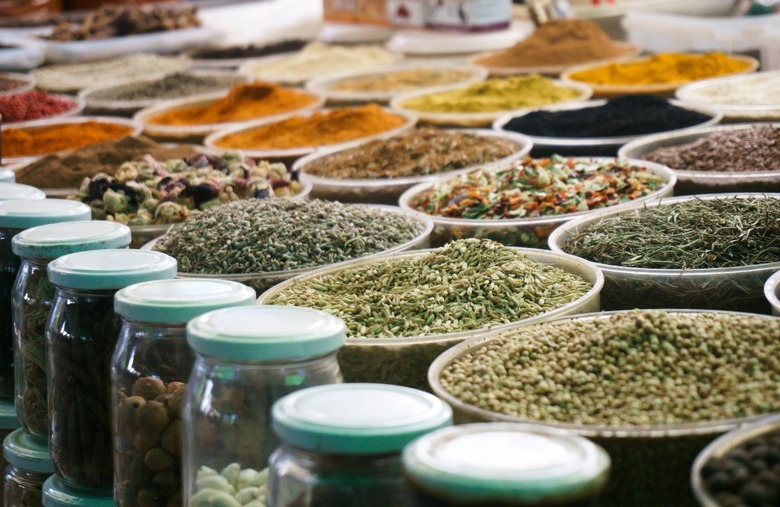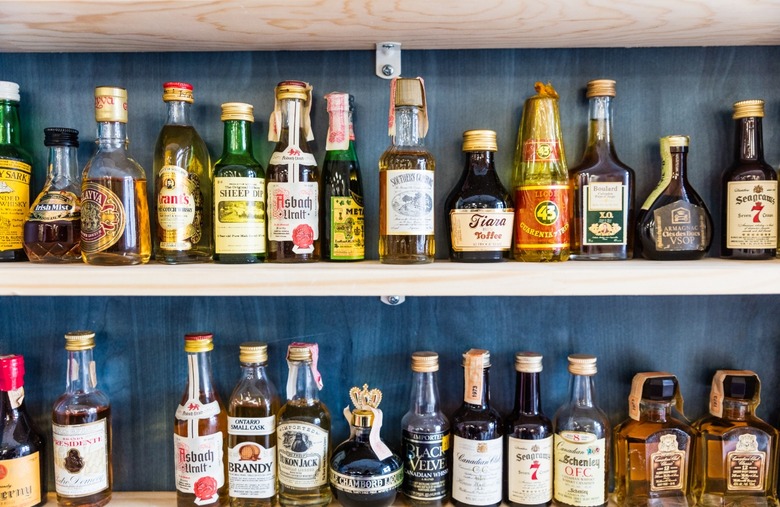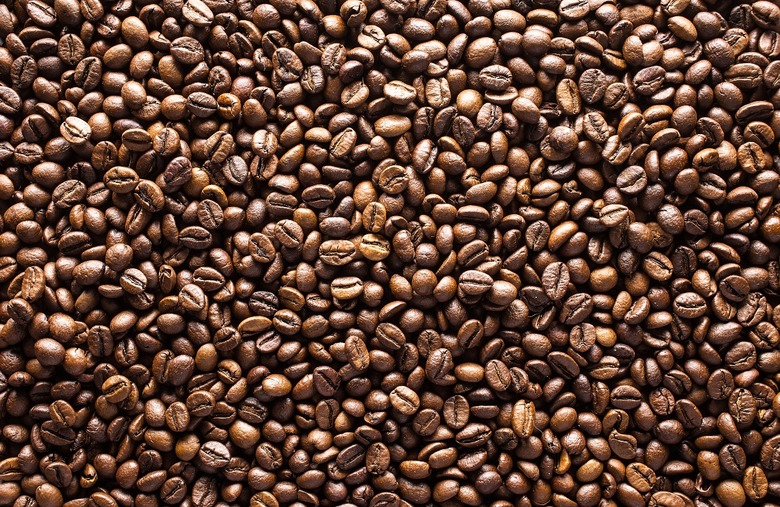A Guide To Foods You Can And Can't Bring Into The U.S. Slideshow
Depending on where they were purchased, how long ago, and where they're being taken, fruits and veggies can easily be a prohibited item. U.S. Customs notes the Mediterranean fruit fly outbreak in the 1980s as an example — it cost $100 million to rid the country of the flies and it originated from a single piece of fruit brought to the U.S. by a traveler.
What you can bring: Dried fruits (like apricots, currants, dates, figs, and raisins), peeled garlic cloves, cleaned ginger roots, canned produce, fresh or dried above-ground parts of mushrooms that have been cleaned, and coconuts with husks completely removed.
Meat and Poultry
Even more intense than the restrictions on fruit and veggies are those on meat and poultry. You cannot bring most meat products in any form (fresh, dried, cured, or canned) into the U.S. from most countries, nor can you bring any food products that have been prepared with meat. That includes bouillon, soup mixes, and broths. The Customs department notes that canned meats are permissible except beef, lamb, veal, mutton, venison, elk, and bison. Pork (except that from Mexico) can be allowed under tight restrictions and only if commercially canned and unopened. Also, we're told (not by Customs, but by a traveler) that a small amount of pâté (declared) is allowed.
Fish
Bringing fish back to the U.S. is decidedly easier, though it's not without limitations. Customs allows "personal amounts" of fish, shrimp, abalone, and other seafood to be brought in nearly any form — fresh, frozen, dried, smoked, canned, or cooked. Bringing their byproducts (or more exotic counterparts) is generally prohibited, including shellfish, mollusks, reptiles, and live fish.
One of The Daily Meal's employees recently traveled with ¼ pound of caviar in her carry-on (so posh) and after much debate the TSA allowed it, but said that any larger quantity would have been confiscated. (Still wondering if it was considered a liquid or a gel?)
Eggs
There are a number of specific egg items that are absolutely prohibited and the rest are heavily restricted, so best just to leave the eggs abroad. Moon cakes (baked goods with egg and meat stuffed in the center) are notably restricted, as are confetti eggs from Mexico. Anything containing raw eggs is strictly prohibited and any egg-based items (including plain old eggs themselves) from Mexico are as well. Bringing cooked eggs for personal consumption is the only way you might get away with it, but generally it's not advised.
Cheese and Dairy Products
Bringing cheese into the U.S. is a textures game. Hard cheese (not containing any meat), butter, butter oil, and cultured milk products are allowed. Some crumbly and semi-soft cheeses are allowed like feta, brie, camembert, cheese in brine, mozzarella, and buffalo mozzarella. But if the cheese is creamy and very soft or is in a liquid like cottage cheese or ricotta, it is prohibited. Unpasteurized cheeses are prohibited unless they are more than 60 days old. All cheeses from any country affected by foot-and-mouth disease are subject to inspection. Milk and creams are heavily restricted, except those intended for use by infants.
Nuts
By and large, nuts are permitted by Customs. All nuts that have been boiled, cooked, ground, oven dried, pureed, roasted, and steamed are allowed. Nuts like almonds, Brazil nuts, cashews, and pistachios are allowed if their husks (casings, shells) have been removed. Many travelers have noted that you're not allowed to bring chestnuts, though we didn't come across official word of that.
Bread, Rice, and Pasta
Bringing rice is somewhat limited because it can often harbor insects. While the official list states that white rice, basmati, brown rice, husked rice, polished rice, and rice flour are allowed, the Customs department does note that it's generally advised not to bring it into the U.S. White flour, oat flour, and cornmeal are generally allowed as is most dry pasta. Bread and crackers are generally permitted, as well.
Packaged Foods and Baked Goods
Baked goods like cookies, cakes, granola bars, dry beans, and cereal are allowed. Any noodles or ramen containing meat or eggs in their spice packets, however, are prohibited. Candies, chocolates, canned goods (those not containing meat or poultry), and baking mixes are generally admissible, although Kinder Eggs (that come with toys inside) are effectively banned.
Plants and Seeds
Cut flowers are allowed into the U.S., though plants and most seeds require permits. What's notable is that any plant or plant product (including handicraft items made with straw) must be declared. Seeds for flowers and vegetables have been noted by travelers as okay items, though there's nothing officially written on those. Flowers in the following forms are subject to inspection: dried, bleached, dyed, or chemically treated, as well as plant filler and other greenery like fronds and plumes. Certain flower bulbs from the African continent, Argentina, Brazil, France, Italy, Malta, Mauritius, Portugal, and Uruguay are prohibited.
Condiments and Spices
Dried spices are usually allowed, though it has been noted by travelers that curry leaves are not permissible. The Customs department singles out tamarind bean pods as being allowed, while the following dried spices are not: orange, lemon, lime, and other citrus leaves, lemongrass, and veggie and fruit seeds. Condiments like ketchup, mustard, mayo, and prepared sauces, as well as olive oil and vegetable oils are allowed. Comb honey, royal jelly, bee bread, and propolis (if not intended to be fed to bees) are allowed, as well.
Alcoholic Beverages
Up to one liter of alcohol is permitted, free of tax and while you're allowed to bring more than that for personal use, you'll have to pay duty and IRS taxes on it. What's more, the rules vary depending on what state you go through customs in. If you land in a state that taxes alcohol or has laws against it, you'll be taxed or it will be taken away. Bringing absinthe into the country is subject to FDA regulations — specifically, it must be thujone-free and, take note: The term "absinthe" cannot be the brand name on the bottle, cannot stand alone on the label, and the artwork on the label cannot have images of hallucinogenic effects.
Non-Alcoholic Beverages
Roasted coffee beans can be brought in if there is no pulp attached. Likewise, commercially packaged tea (ready to be boiled, steeped, or microwaved in liquid) is allowed. The Customs department specifies that coca, barberry, and loose citrus leaves are prohibited. Commercially canned juices and juice drinks are allowed as are powdered drinks sealed in their original containers with ingredients listed in English on their packaging. There are certain restrictions placed on powdered drinks, but it will depend on the customs agent when you arrive.

